WikiLeaks founder Julian Assange at suicide risk, ‘a victim of Trump’s deflection’
A UK Court has heard Julian Assange is hearing voices and made plans to end his own life as the fight to extradite the WikiLeaks founder to the United States rolls on.
Julian Assange is preparing to take his own life, a leading psychiatrist has told the WikiLeaks founder’s extradition hearing.
“He’s made various plans and undergone various preparations,” Professor Michael Kopelman told a UK court on Tuesday, saying the 49-year-old had confessed his plans to a Catholic priest, written a will and drafted farewell letters to friends and family.
“Various preparations are in place,” the Kings College Emeritus Professor said, adding that Assange’s ideations could be triggered by the “imminence of extradition and or an actual extradition.”
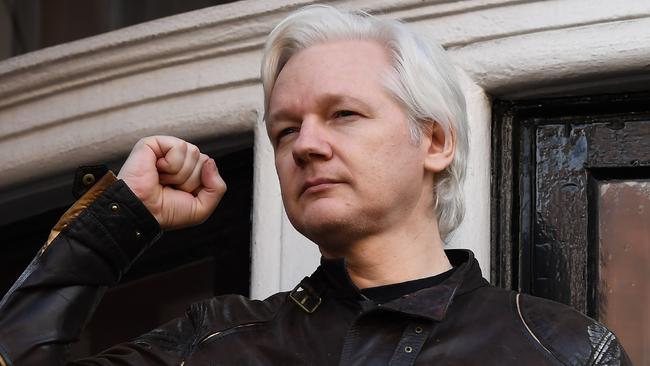
According to Prof Kopelman, Assange has “reported auditory hallucinations, which were voices either inside or outside his head, somatic hallucinations, funny bodily experiences.
“He also has a long history of musical hallucinations, which is maybe a separate phenomenon, that got worse when he was in prison,” Prof Kopelman said.
“The voices are things like, ‘you are dust, you are dead, we are coming to get you’. They are derogatory and persecutory.”
Prof Kopelman told the court that Assange, who has a genetic predisposition to depression, was “severely depressed when he was in an isolated cell.”
Assange is currently taking medication to treat depression and psychosis, but Prof Kopelman said the WikiLeaks founder had experienced adverse side effects.
“His appetite has fluctuated, he’s had persistent problems with sleep and his mood state is worst in the early hours of the morning and that’s stayed consistent,” Kopelman said.
Prof Kopelman also said Assange was “very reluctant to talk about his suicidal ideas and plans because he feared he would be put on constant watch or isolation.”
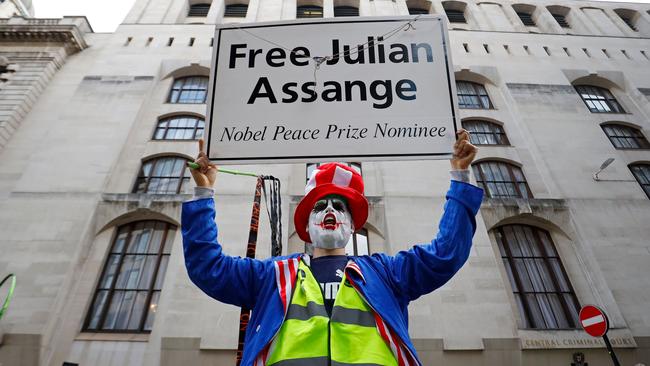
He also told the court of an instance in which Assange “reported a near-death experience and wondered if the CIA would find a way to get him or mess with his head.”
Edward Fitzgerald QC, who is representing Mr Assange, noted Assange has requested a suicide prevention phone number ten times last year over a period of four months.
But James Lewis QC, who is representing the US government, challenged the validity of Prof Kopelman’s assessment, saying much of the findings were based off incidents self-reported by Assange and not always shown on records.
TRUMP CHASING ASSANGE FOR ‘IDEOLOGICAL AGENDA’
Donald Trump and the US Justice Department decided “to attack an unpopular foreigner and try to put him in jail for the rest of his life’’ to combat the suggestion WikiLeaks helped him win the 2016 election, a witness for Julian Assange has claimed.
The Australian reports that Eric Lewis, a US lawyer, has told Assange’s extradition trial in London that when Mr Trump took office, “a highly politicised Department of Justice decided that there was advantage to prosecuting Mr Assange based upon a radically changed ideological agenda’’.
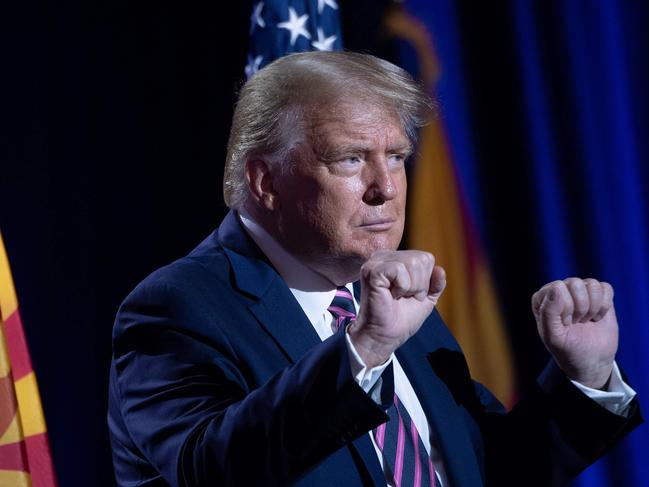
“The Trump administration’s sudden and belated decision to prosecute, and then to greatly amplify the charges and Mr Assange’s jeopardy, was, in my view, political and unconstitutional,’’ he said.
Mr Lewis said he believed there was overwhelming evidence of the modus operandi of the current US President and senior officials in his administration, as well as statements made and actions taken with respect to Assange, “that this is a politically motivated prosecution’’.
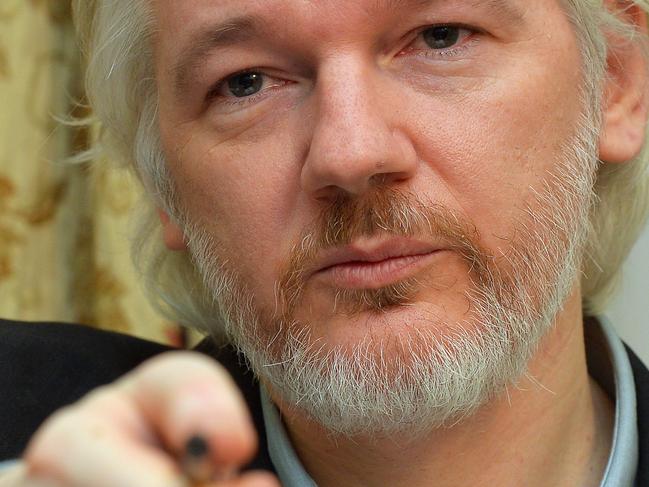
Assange is arguing that Britain can prevent his extradition to the US, where he faces 18 charges, 17 under the Espionage Act, and 175 years in jail, if the case is being pursued for political reasons.
Mr Lewis said US Attorney-General William Barr “demonstrates extreme personal and political loyalty and deference to the President, who has an extreme view of government secrecy prerogatives, especially in the national security area, and an extreme view of presidential power and how it trumps Justice Department independence and discretion’’.
He said “much of what has occurred has occurred in plain sight, often with admissions by the President himself or by his Attorney-General’’.
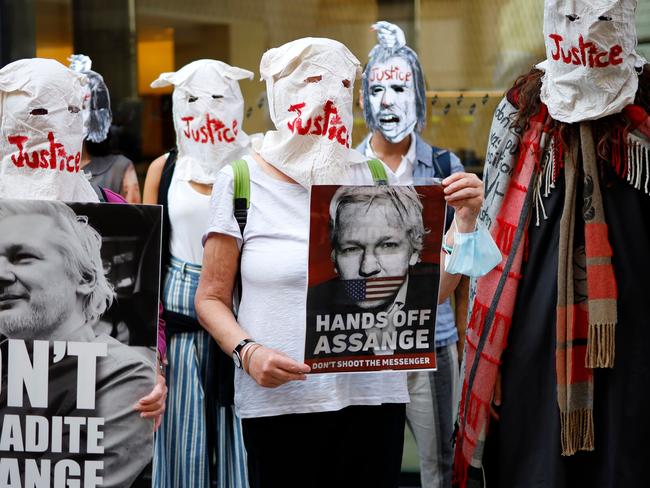
“The President has frequently made clear that he expects his Attorneys-General to pursue and implement his political agendas, to help his friends and hurt his enemies,’’ he said.
Mr Lewis said the US confined the indictment to the WikiLeaks documents published in 2010, to insulate the Russia leaks of 2016 that would have raised the risk of a trial that required evidence of connections between the Trump campaign and WikiLeaks.
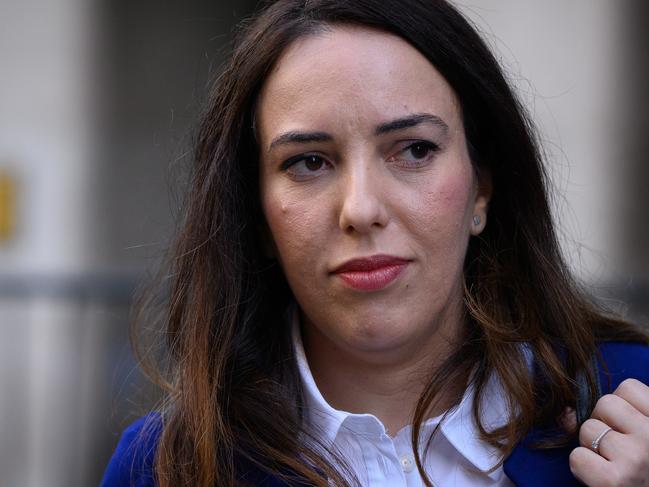
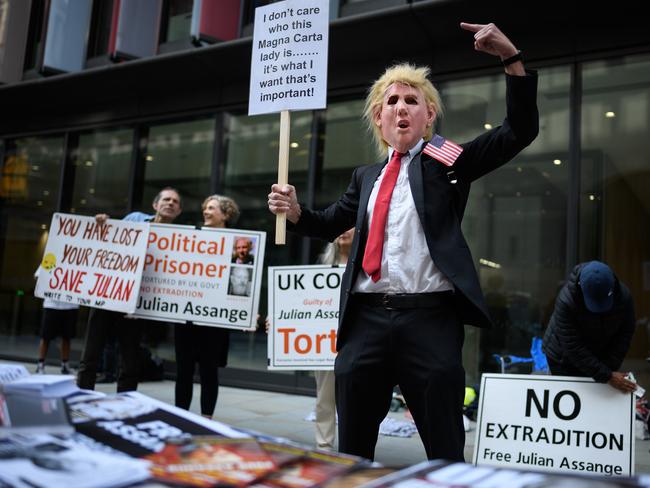
But he said when Assange faced sentencing in the US, the judge could include other WikiLeaks’ publications as part of relevant conduct considerations
The trial continues.
ASSANGE EXTRADITION HEARING DELAYED BY COVID
Julian Assange’s extradition case was thrown into turmoil when one of the prosecutors was suspected of catching coronavirus, forcing an abrupt adjournment.
The hearing at London’s Old Bailey courthouse was stopped on Thursday night Australian time with Judge Vanessa Baraitser putting the case off until lawyers were tested.
The Australian WikiLeaks founder is facing 175 years in jail if he is extradited to the United States on spying and computer hacking charges for dumping hundreds of thousands of classified government documents online.
The US claims he put sources’ lives in danger, while he argues he was acting as a journalist.
Judge Baraitser accepted submissions from both the prosecution and defence teams that sought the delay.
“Last night I was informed that one of the barristers had exposure,” she said.
“Testing will take place today and the outcome will be known at some time tomorrow.”
Judge Baraitser had wanted to continue to run the long-delayed case via video link, but said she understood that there were technical difficulties.
She said she wanted lawyers for both sides to come up with ways to continue the case if it was required in future.
Courts in the UK have been running with modifications because of the coronavirus pandemic, with the public separated from the courtroom.
Johnny Depp’s blockbuster case against Amber Heard was able to continue for almost a month without a positive test interrupting proceedings.
Edward Fitzgerald, QC, for Assange, said that the case could not proceed until everyone was cleared of the virus.
“We really shouldn’t be here today, COVID could be in the courtroom,” he said.
“Our client, Mr Assange has vulnerabilities that I think you are aware of.”
He also said that he did not want the court staff to contract the virus, which has been climbing in recent days in the UK, although cases in London remain comparatively low.
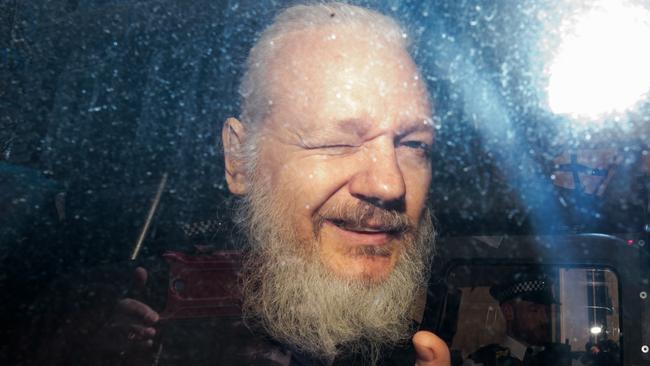
James Lewis, QC, for the prosecution, said he agreed with the delay “until we know whether or not the test is positive.”
And Mr Lewis, who was appearing via video link, said that it did not work.
“At the moment, all I can see is the back of Mr Fitzgerald’s seat and his jacket and it’s frozen,” he said.
Assange has avoided the extradition hearing for almost a decade, spending seven years hiding in London’s Ecuadorean embassy until he was arrested in April, 2019.
His supporters have claimed he was ill, which is the defence that his team has been running and a potential reason to stop the extradition.
Assange has repeatedly interrupted proceedings from the dock, and an early attempt to have the case delayed until after the United States election in November was rejected.
ASSANGE LAWYERS ARGUE HE IS A ‘SUICIDE RISK’
Lawyers for WikiLeaks founder Julian Assange have failed to persuade a British judge to throw out new US allegations against him, as he resumed his fight to avoid extradition to the United States for leaking military secrets.
Protesters gathered outside London’s Old Bailey court on Monday local time as the 49-year-old Australian was brought in, brandishing placards reading “Don’t Extradite Assange” and “Stop this political trial”.
Among the supporters fashion designer Vivienne Westwood, who said he was “shining the light on all the corruption in the world”, and his father, John Shipton, who said the hearing was an “abuse trial.”
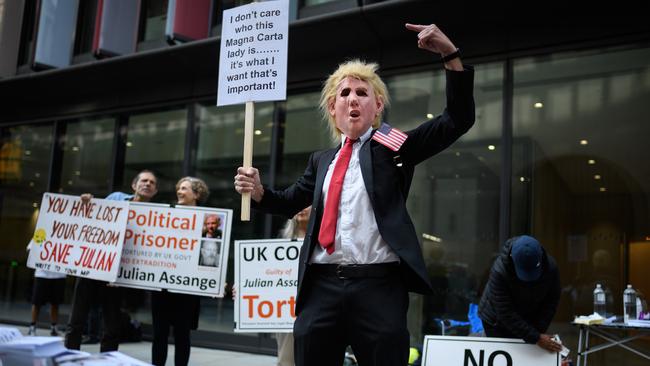
Inside, Assange’s lawyers sought to “excise” new allegations lodged by Washington in recent weeks, saying they had not had time to formulate a proper response.
Clean-shaven and wearing a dark suit and maroon tie, Assange spoke to confirm his name and date of birth, and said he did not consent to extradition.
It was the first time he has been seen in public since the first part of the hearing in February, when he appeared weak and confused.
Assange faces 18 charges under the US Espionage Act relating to the 2010 release by WikiLeaks of 500,000 secret files detailing aspects of US military campaigns in Afghanistan and Iraq.
Washington claims he helped intelligence analyst Chelsea Manning to steal the documents before exposing confidential sources around the world.
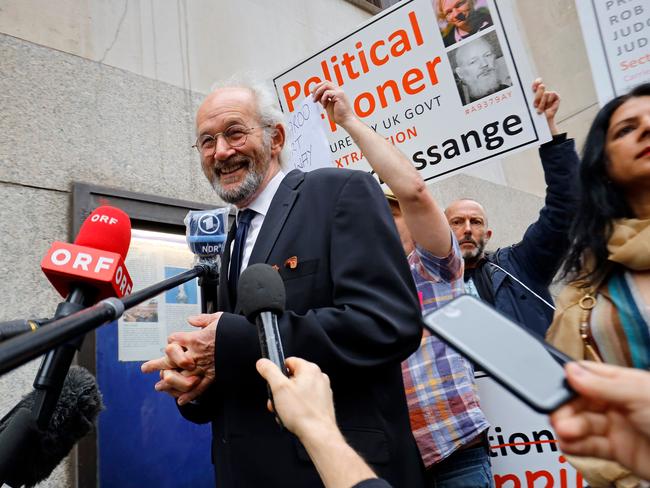
If convicted, Assange – who has been held at the high security Belmarsh Prison for the last 16 months – could be jailed for up to 175 years.
US authorities recently laid out new evidence against Assange alleging that he and others at the whistleblowing site recruited hackers.
In court, defence lawyer Mark Summers protested against the “11th hour” allegations, noting the difficulties Assange already had in communicating with his legal team due to coronavirus restrictions.
“What is happening is abnormal, unfair and liable to create injustice if allowed to continue,” he said.
But District Judge Vanessa Baraitser said: “These are issues which must take place in the context of considering the extradition request and not before it.”
Assange’s lawyers also argued the extradition request should be denied because of his “mental conditions and the high risk of suicide’ and claimed that the charges were politically motivated as part of President Trump’s “war on journalists”.
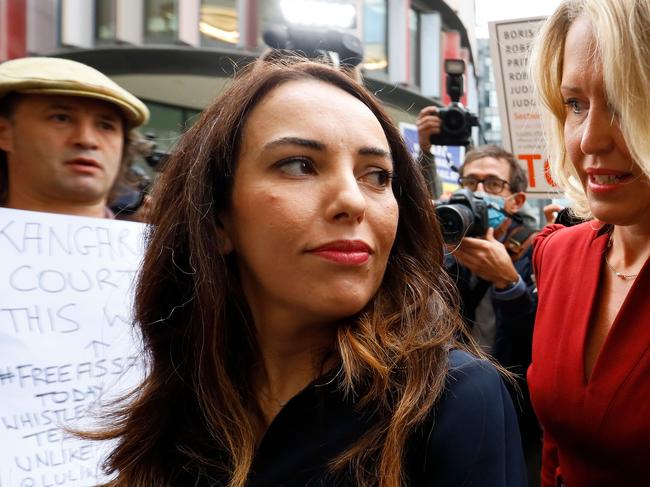
Assange’s partner, Stella Moris, took a 80,000-strong petition opposing his extradition to Prime Minister Boris Johnson’s Downing Street office, but was turned away.
She has said she feared Assange would take his own life – leaving their two young sons, who were conceived during his asylum in Ecuador’s London embassy, without a father.
Morris was able to visit Assange in London’s Supermax Belmarsh prison with his sons Gabriel and Max for 20 minutes, with prison access restricted to stop the spread of coronavirus.
She said he was in poor health.
“To the boys, Julian has become a voice on the telephone, not their father whom they can see and hug,” she said of the children who were born while he was unable to leave the embassy for fear of arrest.
“It is heartbreaking to think that if Julian is extradited and put in a US super-max prison the boys will never get to know their father and he will never see them grow up.”
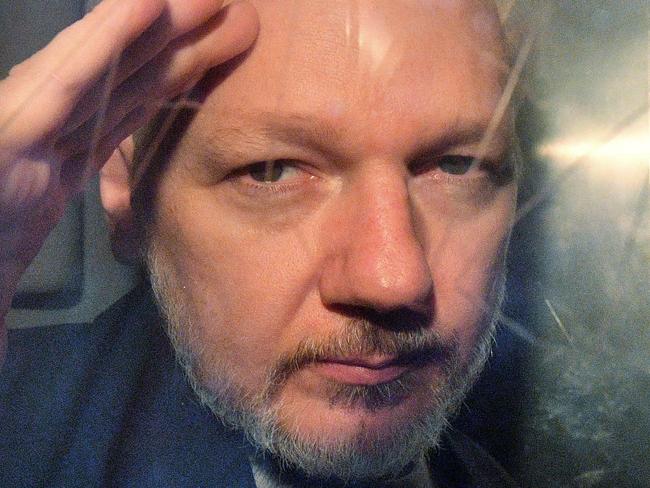
The United States legal team has argued in previous hearings that Assange released the names of American informers, human rights activists, religious leaders and journalists in Afghanistan.
The names were contained in a leak of hundreds of thousands of classified US government documents.
WikiLeaks documents were found in Osama Bin-Laden’s compound when he was executed in Pakistan in 2011, but the US has conceded there was no evidence anyone was killed because of the leaks.
And while initially the leaks were filtered through newspapers including The New York Times, The Guardian and Germany’s Der Spiegel, Assange dumped the full documents after a password was revealed in a book.
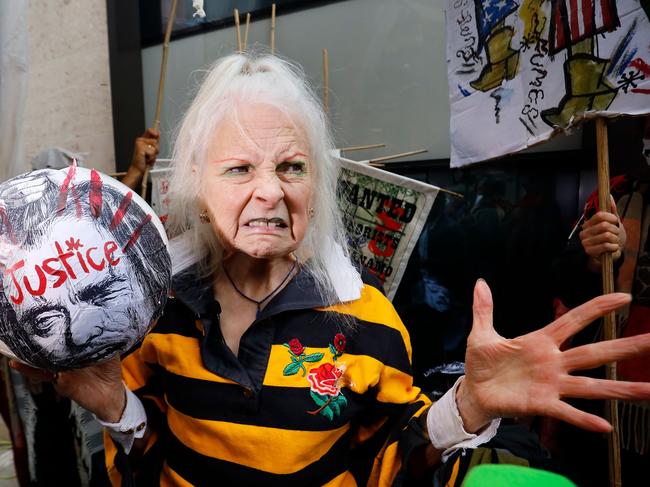
MORE NEWS
China puts vaccines on show as UK faces new surge
Harry, Meghan pay back $5m public funds
Location-free job ads are the future
How Victoria’s lockdown compares to the rest of the world
“He decided to do so on a widely followed and easily searchable website, WikiLeaks, knowing it was dangerous to do so,” James Lewis, a lawyer for the US authorities, said at a hearing in London in February.
Assange has claimed that the CIA spied on him while he was in the Ecuadorean embassy, with video footage emerging of him with Ms Morris and also showing visits from Pamela Anderson, the Baywatch star.
The cleaning company allegedly spying for the CIA attempted to get one of his children’s nappies for a paternity test.
However, Assange was accused of smearing faeces on the wall during his time in the embassy, which partly prompted their government to revoke their protection.
The case is due to be heard for four weeks, and the losing side is expected to appeal.
It is unlikely that Assange would be taken to the US for at least a year even if he lost the case.
If you or someone you know needs support, contact Lifeline on 13 11 14 or Beyond Blue 1300 22 4636.
